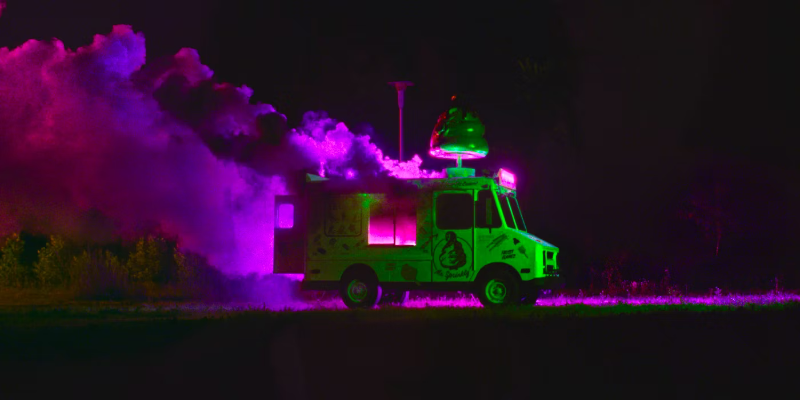What to read after watching I Saw the TV Glow.
I haven’t stopped thinking about I Saw the TV Glow, the new A24 film from writer/director Jane Schoenbrun, since seeing it over the weekend. It’s one of the best movies of the year (I scream-cried in the car on the way home) and while I think it’s best seen with as little context as possible—if you’re the kind to take a flyer on a blind-date book in your local indie, stop reading about it now and go see it—my simple synopsis would be that it’s about a lonely teenager named Owen who bonds with another outcast named Maddy over a Buffy-meets-Twin-Peaks-meets-Pete-&-Pete TV series. After Maddy disappears and the show gets cancelled, Owen’s understanding of his self and his reality starts to falter.
It is also about so much more than that, and it’s the kind of art that sends you out into the world desperate for more things like it… so here’s a list of novels to dive into while you wait for season six of The Pink Opaque. And let me know what you think if you see the movie and read any of these—I’m longing to talk about… well, really, all of it.
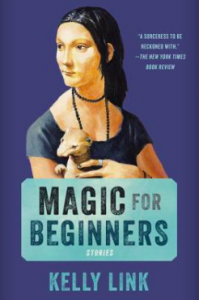
Kelly Link, Magic for Beginners
The whole time I was watching the movie, I kept thinking about Kelly Link. I Saw the TV Glow isn’t an adaptation of a Link story but I mean it as the highest of compliments to say that it often feels like one. The title story from Magic for Beginners is an obvious touchpoint with its teen protagonists and their love for a strange TV series, but something about the way that Link writes into the emotional core of her main characters will absolutely make you think about Owen and Maddy and your own teen years. See also: Link’s The Book of Love, which also features teens, death, strange art, and blurred realities.
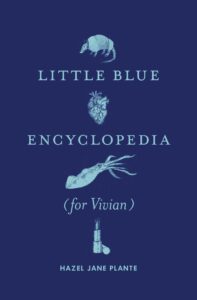
Hazel Jane Plante, Little Blue Encyclopedia (for Vivian)
Schoenbrun has been open about how their work directly addresses gender dysphoria and trans identity, and Hazel Jane Plante’s novel of queer grief and TV-based friendship is a perfect companion piece for this film. It’s a fast read but, like the film, it’ll stick in your mind for a long time after you’ve finished. It’s structured as an encyclopedia of a single-season Lynchian TV show called Little Blue but the queer trans woman writing the encyclopedia is using it to process her grief (and unrequited love) for her straight trans friend who recently died.
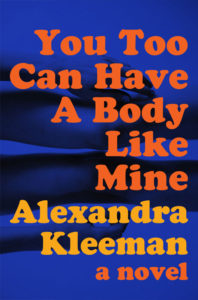
Alexandra Kleeman, You Too Can Have A Body Like Mine
Kleeman is an unabashed Twin Peaks fan and all of her work shares some fundamental DNA with Lynch’s pioneering strangeness even as it stakes its own claim in the vast expanse of the uncanny. Her debut novel is one of my favorite books of all time and its ending also left me shaken, needing to re-experience the whole thing immediately. Much of the world-building in YTCHABLM could easily slide over into The Pink Opaque, I Saw the TV Glow‘s in-universe series, and several of the series’s monsters (especially The Ice Cream Man) feel like they might’ve stepped right out of a Kleeman story.
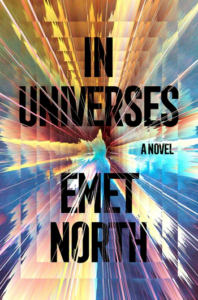
Emet North, In Universes
A practicing physicist before they were a novelist, North wrote their thesis on the many-worlds theory of quantum mechanics(!) and their debut blends great storytelling with serious contemplation of what the many-worlds theory could mean for questions of identity, life, death, and more. The main character, Raffi, is constantly changing across the different worlds of this novel’s stories and the characters around them are, too—changing gender, changing name, changing relationships, all in pursuit of honest truth about themselves. Read this when you need a bit of hope and uplift after you’re done crying from the movie.

John Darnielle, Universal Harvester
The frontman of The Mountain Goats is no stranger to stories of alienated youths, dead-end small towns, and the desire to be seen by someone, anyone. Universal Harvester, his second novel, is set in the same VHS era as the bulk of I Saw the TV Glow and it carries the same constant sense of unease, that same ever-present sadness that you might feel driving down a lonely winter highway. It also includes one of the most jarring (in a good way) pronoun-related twists in all of literature.
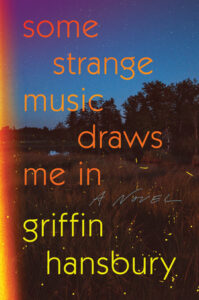
Griffin Hansbury, Some Strange Music Draws Me In
The last book on the list also happens to be the one I finished just before heading to the movies, the sort of serendipity I long for. Hansbury’s novel is the story of a teen girl named Mel who meets a trans woman in her small suburban Massachusetts town in 1984… and who returns to that town as a man named Max some thirty-five years later to sell his mother’s house after her passing. The novel’s depiction of teenage passions and confusions is a more hopeful story than that of the film (I longed for Owen to find something like Max’s surety in himself) but really that just makes it the flip side of a similar coin: you can either open yourself up and change, or suffocate under the weight of a heavy life.


